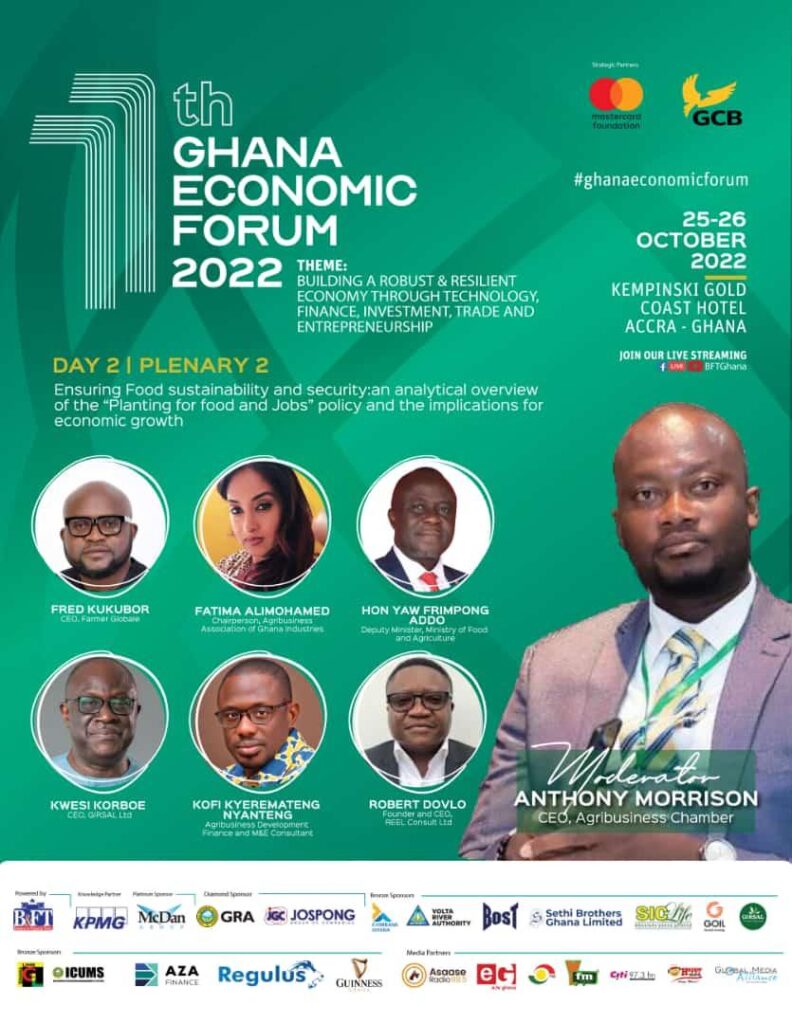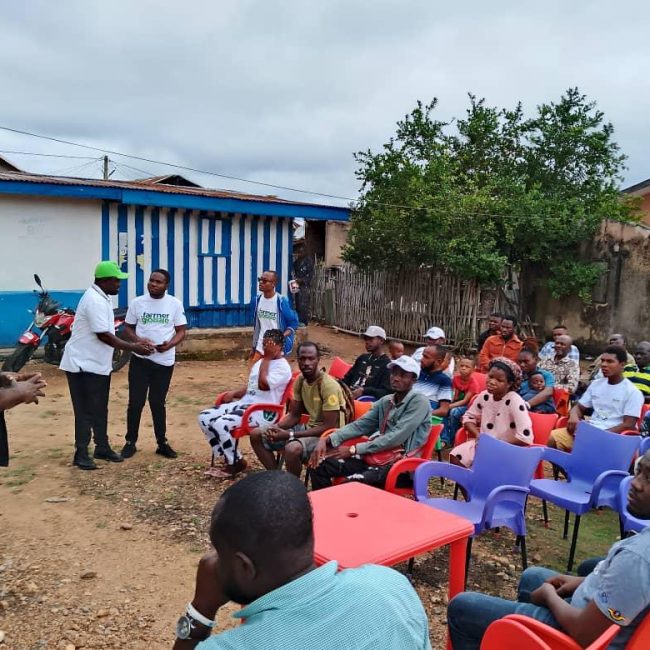
Farmer Globale at the 2022 Ghana Economic Forum – Insights from Our Founder on Food Security and Sustainability
At the heart of Ghana’s economic discourse lies the challenge of building a resilient and robust economy. Farmer Globale’s Founder and Managing Partner, Mr. Fred Kukubor, was honored to participate in the 2022 Ghana Economic Forum held at the prestigious Kempinski Gold Coast Hotel in Accra. This event, known for gathering industry leaders from various economic sectors, provides a strategic platform for critical discussions and recommendations aimed at enhancing Ghana’s economic fundamentals.
The theme for this edition of the forum, “Building a Robust & Resilient Economy through Technology, Finance, Investment, Trade, and Entrepreneurship,” set the stage for deep insights and forward-thinking solutions on how Ghana can strengthen its economic infrastructure. Mr. Kukubor took part in the important session titled, “Ensuring Food Sustainability and Security: An Analytical Overview of the Planting for Food and Jobs Policy and the Implications for Economic Growth.”

Here are some key takeaways from Mr. Kukubor’s engagement:
1. The Need for Increased Investment in Commercial Food Production
One of the critical points emphasized by Mr. Kukubor was the urgent need to scale up commercial food production. He noted that Ghana’s over-reliance on smallholder farmers, who currently produce over 80% of the country’s food, poses a challenge in meeting the growing demand for major staples. While smallholder farmers play an essential role in the agricultural sector, commercializing food production will help formalize markets, ensuring that food production is both efficient and market-responsive.
By driving investments in large-scale food production, Ghana can create more structured supply chains that meet both domestic and export demands. This shift is key to achieving food security while also contributing to the country’s macroeconomic stability.
2. Shifting from Agri-culture to Agri-business
In addition to advocating for increased commercialization, Mr. Kukubor highlighted the need for a mindset shift among smallholder farmers. Moving from a traditional “agri-culture” approach to a more business-oriented agriculture is crucial. This transformation would empower farmers to operate their farms with a clear focus on profitability, market trends, and sustainability, rather than seeing farming as a mere subsistence activity.
Farmer Globale has been at the forefront of promoting this shift through various farmer training programs, emphasizing the importance of financial literacy, market access, and technology adoption to build resilient agricultural businesses that can withstand external shocks and meet market demands.
3. The Importance of Big Data in Agribusiness
Another significant gap in Ghana’s agribusiness sector is the lack of accurate and comprehensive data. Mr. Kukubor stressed that big data and data-driven decision-making are essential for driving investments and informed policy decisions in agriculture. The current data disparity makes it challenging for both government and private sector stakeholders to plan effectively or attract investments into key agricultural value chains.
At Farmer Globale, we believe that investing in data collection and analysis will not only boost investor confidence but also help farmers improve their productivity and profitability. By embracing digital technologies and leveraging data analytics, the agricultural sector can be transformed into a more organized and investment-ready ecosystem.
Looking Ahead: A Sustainable Path for Ghana’s Agriculture
Mr. Kukubor’s participation in the 2022 Ghana Economic Forum underscored Farmer Globale’s commitment to fostering sustainable agriculture and food security in Ghana. By commercializing food production, empowering smallholder farmers, and addressing the data gap within the sector, we can collectively build an agricultural landscape that is resilient, productive, and capable of driving economic growth.
As we look toward the future, Farmer Globale will continue to champion these initiatives, working with stakeholders across the value chain to create a thriving agricultural sector that supports the developmental agenda of Ghana and contributes to the overall growth of the economy.



